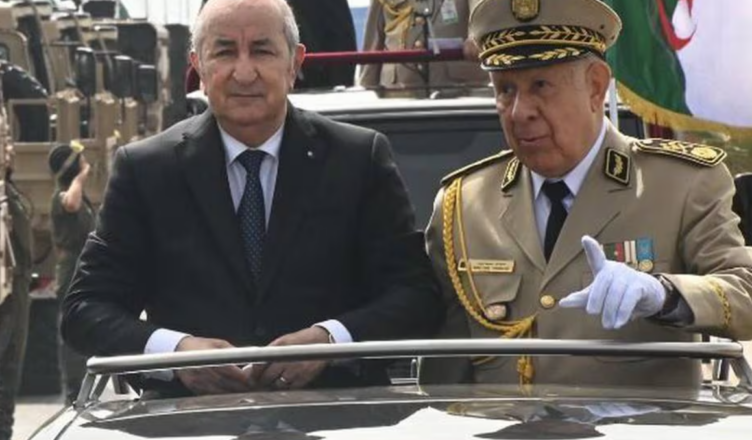Algeria is gearing up for the presidential election of Abdelmadjid Tebboune, who is campaigning for a second term with the support of the military.
In power since December 2019, incumbent President Abdelmadjid Tebboune will face, on September 7, 2024, two candidates selected by the military: Abdelaali Hassani Cherif from the Islamist MSP party and Youcef Aouchiche from the FFS party.
In this particularly turbulent and decisive political context, the military, which exerts a decisive influence on national life in Algeria, is firmly backing Tebboune’s candidacy.
Analysts note that since taking office, Tebboune has consolidated his authority through tight control over security services under General Saïd Chengriha, who leads the armed forces, thus overseeing all government institutions.
The separation between military and civilian powers is virtually non-existent, with key decisions made based on the military’s interests. This militarized environment has characterized the country’s governance, resulting in a pervasive military presence.
External observers are questioning the legitimacy of the electoral process in this early election and the impact of the concentration of power in the hands of the military. Concerns include the transparency of the process and the potential for genuine political competition.
Under Tebboune’s presidency, freedoms in Algeria have been severely restricted: journalists are imprisoned, and opposition figures and political personalities are frequently detained. According to Amnesty International and Human Rights Watch, political life in Algeria is nearly non-existent, with severe restrictions imposed on political parties, unions, and media.

